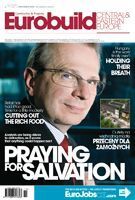The Slovenian-based retail developer Mercator has been busily opening supermarkets and shopping centres throughout Serbia, Croatia and Bosnia-Herzegovina. As a result, the company has arguably become the major retail player in the Western Balkans. That’s why ‘Eurobuild CEE’ decided to speak to company head, Ziga DebeljakColin Graham, ‘Eurobuild CEE’: Mercator has emerged as one of the major retailers and property developers in the countries of the former Yugoslavia. As a Slovenian company, you began in your own country but have now expanded your investment programme into neighbouring nations. What is your current position in the region at the moment?Ziga Debeljak, president of the management board, Mercator Group: We are currently present in five countries in the Western Balkans: Slovenia, Croatia, Serbia, Bosnia-Herzegovina and Montenegro. In terms of revenue, Croatia and Serbia are equally important to us. We generate approximately 15 pct of the group’s consolidated reven




























































